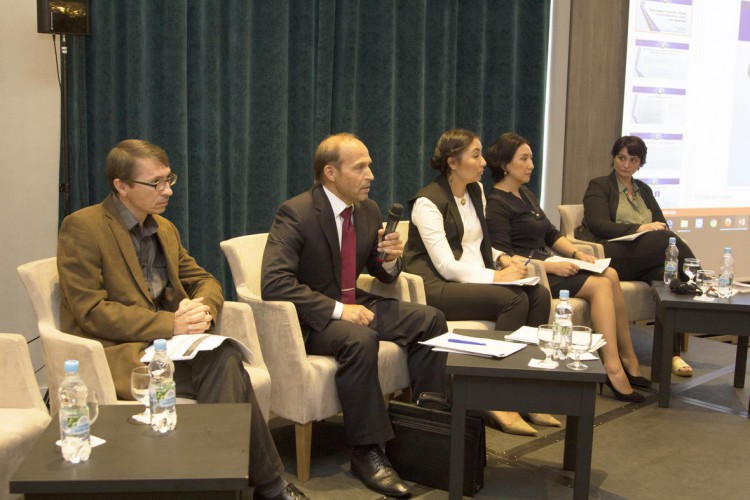Corruption undermines social security
The international conference “Solidarity against Corruption”, held in Kiev, Ukraine, by the Solidarity Center, took place between September 12 and 13 and was attended by Vasile Patrascu, CNSM adviser to the president, and Sergiu Iurcu, head of the Department of Social and Economic Protection of CNSM.
Through their interventions, CNSM representatives emphasized that despite the fact that active measures are being taken in the Republic of Moldova to combat corruption, which resulted in the arrest of officials, businessmen, the dismissal of central public institution leaders, this scourge continues to remain one of the main causes affecting economic development, the creation of new jobs. This is confirmed by the surveys conducted by the sociological institutions in the country, which show that this phenomenon is constantly one of the main concerns of the population.
Since the measures taken by the state structures to combat this negative phenomenon do not materialize through actual results, they have stated that it is strictly necessary to involve civil society as a whole and, in particular, trade unions. In this respect, CNSM representatives have advocated the involvement of trade unions in activities related to the respect of workers’ rights, because ignoring them favours corruption cases. An effective method for doing this is social dialogue and collective bargaining.
It is also important for trade unions to involve in the fight against the informal economy and wages “in the envelope”, their participation in the joint commission made up of representatives of the police, the tax service and the State Labour Inspectorate to combat informal work. The work of the trade unions is also very useful in advancing initiatives to amend legislation aimed at combating informal employment.
Also, at the International Conference “Solidarity against Corruption” there were people from the public authorities with competencies in the field of fighting corruption, from Transparency International, mass media, non-governmental organizations and civil society, colleagues from Ukraine, Kyrgyzstan, Georgia, Serbia, Bosnia and Herzegovina.
Department of Mass Media and International Relations



